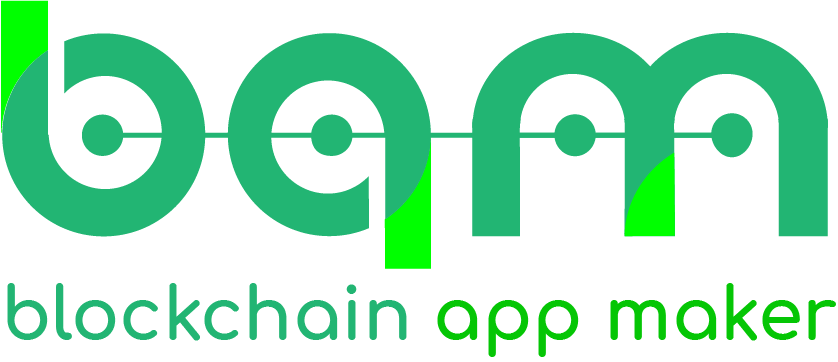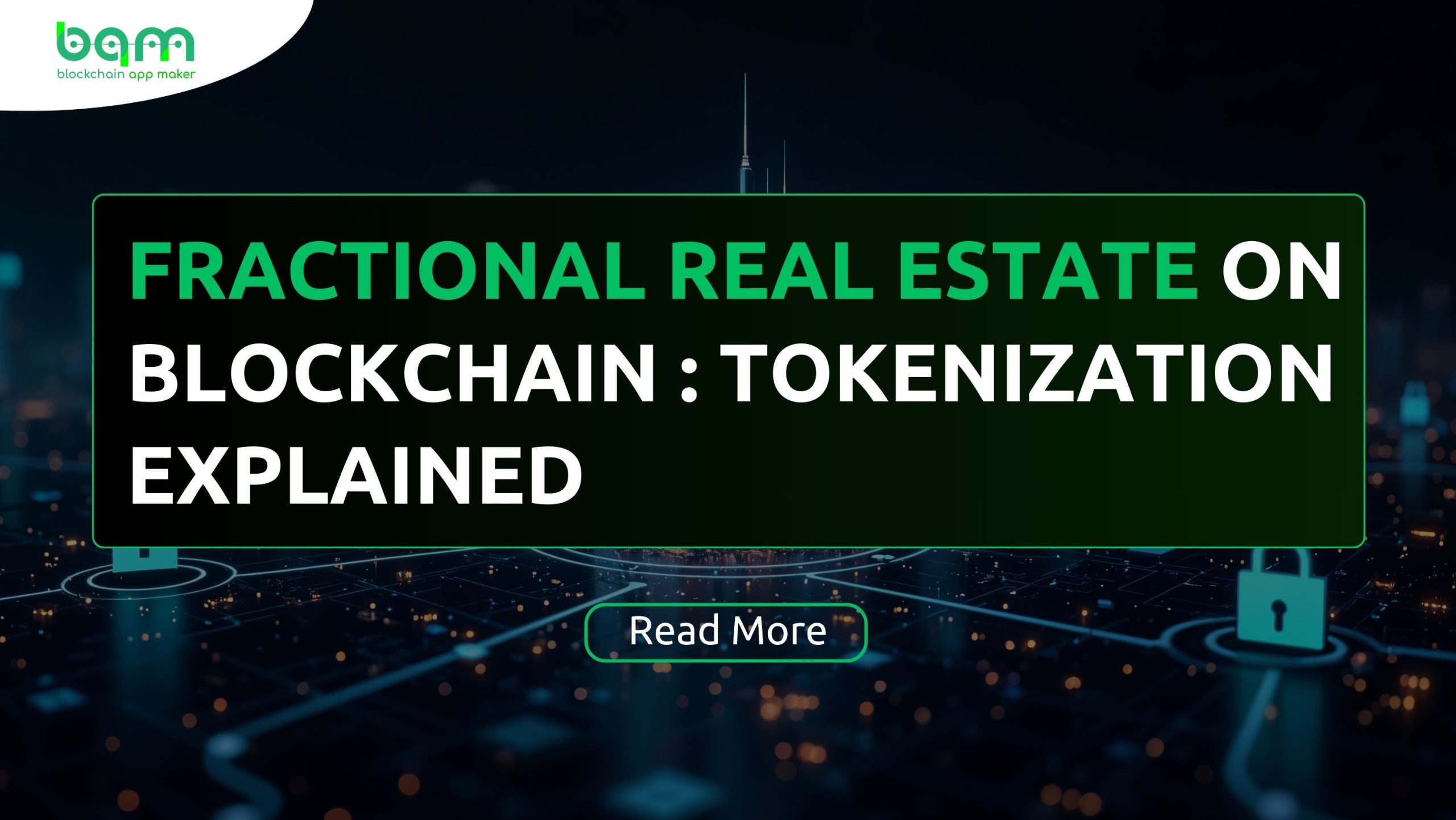Introduction
Real estate has traditionally been one of the most solid and profitable investments which can bring not only capital gains but constant income. However, real estate investment requires a lot of initial funds, includes legal regulatory procedures, and usually commits its investors in long periods. Another difficulty is achieved in liquidity since it may take months or years to sell a whole property.
Fractional real estate on blockchain is revolutionizing this model through tokenization — dividing properties into affordable digital ownership units. They allow investors to hold partial shares of high-valued assets, transition them smoothly and enjoy the transparency, security, and efficiency of blockchain.
Its innovation makes entry into real estate markets easier for white-collar investors around the world and makes investors able to join real estate markets in other geographic areas once restricted due to geographical boundaries. As buyers in foreign countries shun inter-country paper-pushing, developers access a wider market of investors, and capital is mobilized to finance the development of property on a large scale, fractional ownership is communications is changing the face of property financing, trading and managing.
What is Fractional Real Estate on Blockchain?
Fractional real estate can be defined as the concept of splitting a property into smaller ownership shares, which permits various investors to share one investment. In contrast to ordinary joint ownership, in fractional ownership there are usually well-defined rights and responsibilities like they are proportional and the sharing of income is usually supposed to be explicit.
For example, instead of purchasing an entire $5 million commercial building, an investor could buy a $50,000 share that represents 1% ownership. This share entitles them to a proportional amount of rental income, appreciation, and potential resale profit.
Advantages of fractional ownership include:
- Lower investment thresholds – Accessible to a wider pool of investors.
- Portfolio diversification – Spread risk across multiple assets and locations.
- Passive income generation – Earn rental or lease income without managing the property directly.
How Blockchain Enables Fractional Ownership
Fractional real estate is not actually new but with the use of blockchain technology it has become much safer, more efficient and can be easily scaled through tokenization which entails transferring shares of a real estate to a set of digital coins or tokens represented by a blockchain.
Here’s how it works step-by-step:
- Property Valuation – A building or land parcel is professionally appraised to establish its fair market value.
- Token Creation – Smart contracts on blockchain platforms like Ethereum or Polygon issue digital tokens, each representing a fraction of ownership.
- Fractional Sale – Investors purchase tokens proportional to the stake they want to hold.
- Trading & Transfers – Tokens can be bought, sold, or transferred on regulated secondary markets, often within minutes.
- Income Distribution – Rental or lease income is distributed automatically via blockchain-based smart contracts.
Key Benefits of Blockchain in Fractional Ownership:
- Security & Transparency: Records that can not be changed will eliminate frauds and disagreements.
- International Accessibility: Investors can invest easily around the world.
- Quicker Liquidity: The ability to sell or hand off your share without a months-long process to sell a property.
Why Tokenization is Transforming Real Estate Investment
1. Lower Entry Barriers
Rather than millions, investors will get a fraction of the property value that gives access to prime real estate to more individuals.
2. International Access to Investment
Foreign investors will be able to buy the tokens of property, without having to face those cross border legal complexities.
3. Enhanced Liquidity
Its conventional property has a selling time of months. Tokenization means that trading can occur within days on the secondary markets in a matter of days, or even real-time.
4. Transparent Ownership Records
The public ledger allows tracking and verification of every ownership move on blockchain.
5. Potential for Passive Income
The shareholders can collect the distribution rental income according to the proportion.
How Tokenization Works in Real Life: A Step-by-Step Example
Let’s break down a real-world scenario:
- Property Selection: A luxury apartment in Dubai worth $5 million is identified.
- Valuation & Legal Setup: Licensed valuers and legal experts verify the property’s worth and compliance.
- Token Creation: 1,000,000 tokens are minted on Ethereum, each worth $5.
- Investor Purchase: A local investor buys 10,000 tokens ($50,000 stake), while an overseas buyer buys 500 tokens ($2,500 stake).
- Ownership Rights: Each token represents a proportional claim on ownership and rental income.
- Secondary Trading: A year later, one investor sells half their tokens on a regulated secondary market within hours.
Result: The property is co-owned by multiple global investors, all with transparent, blockchain-recorded rights.
Key Technologies Powering Real Estate Tokenization
- Smart Contracts: Automate the transfers and rent collection of ownership, rental distribution, and checks on compliance.
- Blockchain Networks: Ethereum, Polygon and Hyperledger provide the platform of safe and un-alterable records.
- Custody Solutions: Protecting against theft and cybersecurity the wallet systems keep the tokenized assets away from crime.
- Oracles: Introduce off-chain property data, valuations and legal changes as blockchain systems.
- KYC/AML Integration: Makes sure that it meets identity verification and anti-money laundering requirements.
Use Cases of Fractional Real Estate on Blockchain
Multiple stakeholders are experiencing a revamp in the property investment space through the adoption of fractional ownership through blockchain. The following are the ways the various groups can benefit:
1. For Real Estate Investors
- Portfolio Diversification: Acquire high premium properties across the globe without acquiring a full ownership.
- High-Value Asset Accessibility: You are able to invest in shady apartments, business centers, or hotels that you would not have been able to afford previously.
- Market Risk Reduction: In order to eliminate risk exposure, it is better to diversify investment in terms of behavior (residential, commercial, industrial).
2. For Developers & Brokers
- Faster Capital Raising: Sell fractional amounts of the projects to a global pool of investors making capital raising faster.
- Pre-Sales Opportunities: ESTABLISH the funding prior to the construction phase by tokenizing the future shares of that property.
- Marketing Edge: Attract buyers who like blockchain and are tech-savvy, trust transparency and efficiency.
3. For Institutional Investors
- Improved Fund Liquidity – Trade over fractions of the property assets without selling the real estate portfolios.
- Reduce Intermediaries, Legal costs and Settle Delays of Transaction Costs.
- Global Asset Management: Ownership records that are verified and certified on blockchain can then be used to manage properties across the world.
4. For Crypto Enthusiasts
- Real and DeFi 3.0 Asset Exposure: Step out of the NFT gallery and into the real-life assets and income-generating assets.
- Stable Asset Class: Protect your crypto asset against volatility with asset-backed tokens.
- DeFi Adoption: Borrow using property tokens as collateral to DeFi lending or yield-generation options.
How Businesses Can Leverage Tokenized Real Estate
1. Real Estate Developers
Large scale projects can be funded with the help of tokenization and not necessarily loans offered by the banks.
2. Real Estate Companies
Present to investors products that can be offered as investment products pegged on digital assets.
3. Brokerages
Market tokenized properties to international buyers and increase the base of your clients.
4. PropTech Startups
Devise mechanisms that will allow immediate exchange of properties, as opposed to stock markets and multifaceted properties.
ROI Potential and Risk Factors for Investors
ROI Potential
- Rental returns that are received as incomes paid out in the form of tokens.
- Property value appreciation shown in the price of the tokens.
- Investing early gives above average returns in the emerging market.
Risk Factors
- The changes in regulations aimed at trading tokenized assets.
- Property values to be affected by market volatility.
- Weaknesses in platform security.
Tip: Always invest through platforms that are compliant, insured, and transparent.
Challenges & Compliance Considerations
Although tokenization has lots of benefits, it is not without challenges:
- Regulatory Frameworks: There exists a range of securities laws by jurisdiction.
- Market Adoption: The tokens in the form of tokenized real estate is at an early stage of adoption.
- Technology Integration: Needed are powerful blockchain platforms and safe custody.
Pro Tip: The development company can help with the compliance and security of the blockchain entirely.
Future Trends in Tokenized Real Estate (2025 & Beyond)
- Integration with DeFi: Tokenized assets as security against decentralized lending.
- AI-Driven Valuations: Instant property token issuance at real-time pricing.
- Sustainability-Linked Assets: Green-certified buildings getting increased attention from investors.
- Global Regulatory Harmonization: Less variabilized rules make cross-border investment easier.
FAQ Section
Q1: How does fractional real estate differ from REITs?
REITs are companies that own or finance real estate, while fractional real estate gives you direct tokenized ownership of specific properties.
Q2: Is blockchain-based property tokenization legal?
Yes — in many jurisdictions — but it must comply with securities regulations, anti-money laundering (AML) laws, and property registration rules.
Q3: Can I sell my property tokens anytime?
In most cases, yes — if there’s a secondary marketplace and it’s allowed by the jurisdiction’s laws.
Q4: What blockchain platforms are used for tokenization?
Ethereum, Polygon, and Hyperledger are popular due to their robust smart contract capabilities.
Start Your Tokenized Real Estate Journey Today
Fractional real estate on blockchain is redefining how we buy, sell, and own property. Tokenization enables investors to have access to superior assets globally, developers to increase capital quickly, and investors to have more pools and transparency in the market.
In case you are willing to promote tokens of property, Blockchain App Maker may develop your regulation-friendly safe platform with regard to your specific demands. Seems your real estate dream is out-of-date? Let us digitize it.
Contact us today to start building your blockchain-powered real estate platform.



